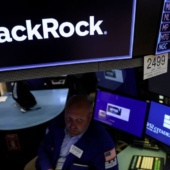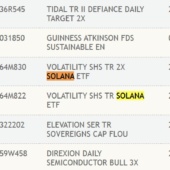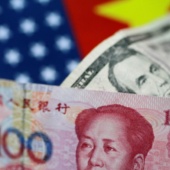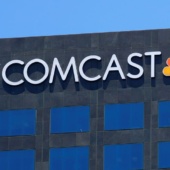‘Hopeful that we will kind of hold our nose and get through it’

Article content
Michael McCain chose sleep over staying up late to watch the United States election, but he was not alone in his surprise upon learning the results the next morning.
The executive chair of Maple Leaf Foods Inc., with his prominent last name and roots in an East Coast French fry dynasty, has not been shy about publicly voicing his disdain for Donald Trump over the years, describing him as someone who violates his sense of “ethics, character and integrity,” and as someone who embodies “everything wrong with the world.”
Advertisement 2
Article content
McCain was confident the majority of Americans felt more or less the way he did, so a week after the seemingly unthinkable occurred, he was still “processing” the reality of Trump 2.0 after giving a speech to a packed house at a Canadian Club event in downtown Toronto on Tuesday.
The 66-year-old appeared almost wearied by a question about Trump, but what worries him most about the next four years isn’t an attack on democracy launched from within the Oval Office or any particular policy the incoming president may unleash, but the “assault on the role of character in leadership” and how it might impact “society at large.”
In other words, if Trump, with his litany of unsavoury character traits — warts and all, including a failed insurrection and a variety of criminal and civil cases against him — can get elected not just once, but twice, what does his success foretell for leaders elsewhere, including the executive offices of North American corporations?
“Maybe it is an unfounded fear, but I don’t think so,” McCain said. “I am just hopeful that we will kind of hold our nose and get through it.”
Article content
Advertisement 3
Article content
McCain has eight grandchildren, and three more on the way. His greatest priority in the present is tackling the “climate emergency” and ensuring there is a livable planet for future generations to grow up on.
Five years ago, Maple Leaf achieved a “protein” industry first by becoming a carbon-neutral operation. It was an embrace of a greener, more sustainable path for the company, and it required tens of millions of dollars in investments, a capital outlay aided by the McCain family having a controlling interest in the company, not to mention that McCain, at the time of the shift, was its chief executive.
The belief in the boardroom was that being good to the planet would also be good for business, and perhaps a payoff is beginning to trickle in since the company reported an $18-million profit in its third quarter, compared to a $4-million loss a year ago.
Times are good business-wise, but the great unknown now is what impact a protectionist, tariff-erecting Trump, who would pull out of the Paris Agreement and deport undocumented American workers, will have if, of course, he follows through on his campaign promises.
Advertisement 4
Article content
Trump ditching the Paris Agreement would “line some pockets” in the near term, McCain said, but he remains confident that there is a critical mass of people globally who bring a long-term lens to tackling climate issues.
As for tariffs and mass deportations, McCain isn’t an economist, but he can’t make sense of policies that run counter to the accepted wisdoms of economic prosperity.
“My very basic economics would say that the American people were most concerned about the economy and inflation, and yet they are endorsing a government whose two primary economic pillars — tariffs and mass deportation — are probably going to be the single most inflationary initiatives I could ever imagine,” he said. “And in both cases, I just don’t have the ability to connect the logic.”
At the Toronto event, McCain stood behind a ballroom podium against a backdrop of Canadian flags and told his audience that the Canadian government was not above its own embrace of legislative lunacy. Exhibit A is Bill C-59, a.k.a. the “anti-greenwashing bill.”
The bill was passed with the good intention of holding companies accountable for their environmentally sustainable messaging. If all their green talk did not have basis in provable actions, a so-called greenwasher could be subject to legal action.
Advertisement 5
Article content
A great idea at first blush, McCain said, but the threat of a financial penalty of up to $10 million, or three per cent of a company’s revenues, could expose good corporate actors to “frivolous” accusations and the onus would be on the company to disprove them.
The result, he said, is that instead of standing up and declaring their environmental, social and governance (ESG) bona fides, corporations in the North American food sector are already pulling back. Mentions of sustainability are being ditched from quarterly reports and initiatives targeting environmentally sustainable ends could be at risk of being abandoned altogether. Amid a punitive environment, leaders will be consumed with trying to be “compliant” instead of looking to lead.
“Bill C-59 is only a risk to those who are trying to demonstrate leadership in climate action, and the unintended consequences of C-59 are to dwarf its decent intentions,” McCain said, adding that the bill is “bad policy” and needs to be repealed and replaced by a policy that “establishes clear support for businesses to advance their sustainability commitments in a credible and transparent way, find pathways to incent leadership and progress, even in the absence of perfection, and avoid the unintended consequence of greenhushing.”
Advertisement 6
Article content
While “discouraged” by events south of the border, McCain isn’t feeling defeated by them. Progress never travels in a straight line, and he is an optimist by nature, a glass half full guy, and not without good reason.
Recommended from Editorial
For example, a few years ago, he and a bunch of like-minded colleagues established an organization dedicated to greening the agrifood chain. Ten years ago, net zero was not really on the radar in agribusiness circles, but now it isn’t only a thing, but something stakeholders are working toward.
“What is taking place south of the border is a discouraging setback,” he said, “but I am going to be optimistic and conclude that it is a point in time and not going to change the arc of history.”
• Email: joconnor@postmedia.com
Bookmark our website and support our journalism: Don’t miss the business news you need to know — add financialpost.com to your bookmarks and sign up for our newsletters here.
Article content
















